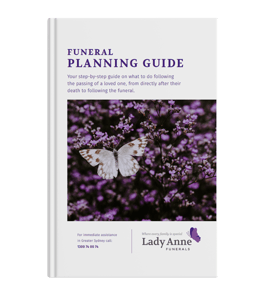This week, I've taken the time to help you gain perspective, as perspective is an imperative element of organising a funeral service. It can be very difficult time in life, though it's important to be aware of your surroundings more than ever.
Imagine you and a friend are standing at the kitchen window. What do you see? Perhaps you see green grass, the backyard tree and the tyre swing hanging from the middle branch. You ask your friend what can they see?. They answer casually “I was looking at the neighbour’s car”.
The window metaphor can help us to understand the effects of culture and religion on our views and our subsequent interaction with the world around us. This ‘world view’ also shapes our beliefs and behaviour we hold dear during bereavement. We have touched on this topic in other blog posts discussing myths about grief and the importance of effective communication whilst sharing your memories.
Given Australia is a nation grounded in multiculturalism and diversity, it is very likely that you have friends, family and colleagues from a different culture or religious background. At Lady Anne Fu-nerals we are accustomed to carrying out a variety of different cultural and religious funerals including RSL, Orthodox, Non-Religious, Church of Jesus Christ of Latter-Day Saints/Mormons, Buddhist, Jehovah’s Witness, Protestant, Hindu, Roman Catholic and Masonic Lodge.
If you are not familiar with these cultural or religious denominations, it can be difficult and awkward, (even for those that follow a generally non-religious lifestyle), to attend a service without knowing the accepted etiquette.
The links above direct to advice pages if you’re a bit short on your religious knowledge with a vari-ety of extra online references available after a simple Google search.
Those that do not practice religion are often overlooked in the religion, culture and bereavement discussion but it is just as important to be aware of the norm here as it is with religious bereav-ment. Some commonly used terms to describe non-religious individuals or groups include irreligi-ous, humanist, atheist or agnostic. Compared to a religious bereavement or burial, the focus is pla-ced on the recently passed individual rather than the god and the afterlife e.g. Jesus Christ and heaven.
The important thing to remind ourselves is that bereavement is a process we all must deal with at some point in our lives. So we have a responsibility to be aware of the different rituals, even those of the non-religious, when supporting our friends, family and colleagues. To give you a head start we put together a basic question guide to help you help your loved ones during the bereavement period.
Ask Yourself
What emotions and behaviours are considered normal grief responses within the grieving person’s culture?
For some cultures, bereavement can be observed quite easily through crying and general sadness. For others, it is much more private and public expression is discouraged. Be in tune but not discri-minatory.
What are the bereaved family's beliefs surrounding death?
Hindu religions require the funeral to take place by either the next dawn or dusk wherever possible. Compare this to most Christian faiths that conduct the funeral one week after death. Non-religious families will also hold the burial one week after provided the death was due to natural causes or in the presence of a health professional (e.g. hospital).
Who is expected to attend mourning ceremonies, and how are attendees ex-pected to dress and act?
In many Christian faiths, signs of grief can extend to our clothing choices (black is most common). Compare this to Buddhism where black clothing is not required and can be avoided. Friends and family of the non-religious individual are most likely allowed to dress to their own free will unless previously specified.
Are gifts, flowers, or other offerings expected?
Buddhist cultures and religions prefer modest offerings and donations to charity where possible. Compare this to a RSL funeral which makes heavy use of patriotic symbolism including poppies, the Australian flag, The Ode and the playing of either Rouse or Reveille. For the friends and family of a non-religious individual, flowers or donations to charity are not an uncommon request.
What special days or dates will be significant for the bereaved family?
Orthodox faiths use hymns, prayers and readings from scriptures with memorials one sunday, forty days, six months and one year after the funeral. Christian faiths will usually celebrate (in their own way) the loved one’s birthday each year as well as remembering them during major Christian holi-days (Christmas & Easter). For many, bereavement continues after the physical funeral.
What types of verbal or written condolence are considered appropriate?
In most Christian faiths, eulogies are accepted along with prayers or hymns from the Bible. In non-religious funerals, all condolences are focused on the individual.
Hopefully this guides helps you with common bereavement practices and rituals. If you have a sto-ry to share, we would love to hear from you! Just leave a reply in the box below.









